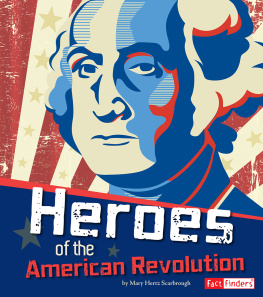I.
Table of Contents
THE DISCOVERERS OF THE UPPER MISSISSIPPI.
Table of Contents
The 17th of May, 1673, Father Jacques Marquette, the missionary priest of St. Ignace, on what is now called the north shore of Michigan, and Louis Jolliet, a trader from Montreal, set out on a journey together.
Huron and Ottawa Indians, with the priest left in charge of them, stood on the beach to see Marquette embarkthe water running up to their feet and receding with the everlasting wash of the straits. Behind them the shore line of St. Ignace was bent like a long bow. Northward, beyond the end of the bow, a rock rose in the air as tall as a castle. But very humble was the small mission station which Father Marquette had founded when driven with his flock from his post on the Upper Lakes by the Iroquois. A chapel of strong cedar posts covered with bark, his own hut, and the lodges of his people were all surrounded by pointed palisades. Opposite St. Ignace, across a league or so of water, rose the turtle-shaped back of Michilimackinac Island, venerated by the tribes, in spite of their religious teaching, as a home of mysterious giant fairies who made gurgling noises in the rocks along the beach or floated vast and cloud-like through high pine forests. The evergreens on Michilimackinac showed as if newborn through the haze of undefined deciduous trees, for it was May weather, which means that the northern world had not yet leaped into sudden and glorious summer. Though the straits glittered under a cloudless sky, a chill lingered in the wind, and only the basking stone ledges reflected warmth. The clear elastic air was such a perfect medium of sight that it allowed the eye to distinguish open beach rims from massed forests two or three leagues away on the south shore, and seemed to bring within stone's throw those nearer islands now called Round and Bois Blanc.
It must have wrung Marquette's heart to leave this region, which has an irresistible charm for all who come within its horizon. But he had long desired to undertake this journey for a double purpose. He wanted to carry his religion as far as possible among strange tribes, and he wanted to find and explore that great river of the west, about which adventurers in the New World heard so much, but which none had seen.

Totem of the Illinois.
A century earlier, its channel southward had really been taken possession of by the Spaniards, its first discoverers. But they made no use of their discovery, and on their maps traced it as an insignificant stream. The French did not know whether this river flowed into the Gulf of Californiawhich was called the Red Seaor to the western ocean, or through Virginia eastward. Illinois Indians, visiting Marquette's mission after the manner of roving tribes, described the father of waters and its tributaries. Count Frontenac, the governor of Canada, thought the matter of sufficient importance to send Louis Jolliet with an outfit to join the missionary in searching for the stream.
The explorers took with them a party of five men. Their canoes, we are told, were of birch bark and cedar splints, the ribs being shaped from spruce roots. Covered with the pitch of yellow pine, and light enough to be carried on the shoulders of four men across portages, these canoes yet had toughness equal to any river voyage. They were provisioned with smoked meat and Indian corn. Shoved clear of the beach, they shot out on the blue water to the dip of paddles. Marquette waved his adieu. His Indians, remembering the dangers of that southern country, scarcely hoped to see him again. Marquette, though a young man, was of no such sturdy build as Jolliet. Among descendants of the Ottawas you may still hear the tradition that he had a "white face, and long hair the color of the sun" flowing to the shoulders of his black robe.
The watching figures dwindled, as did the palisaded settlement. Hugging the shore, the canoes entered Lake Michigan, or, as it was then called, the Lake of the Illinois. All the islands behind seemed to meet and intermingle and to cover themselves with blue haze as they went down on the water. Priest and trader, their skins moist with the breath of the lake, each in his own canoe, faced silently the unknown world toward which they were venturing. The shaggy coast line bristled with evergreens, and though rocky, it was low, unlike the white cliffs of Michilimackinac.
Marquette had made a map from the descriptions of the Illinois Indians. The canoes were moving westward on the course indicated by his map. He was peculiarly gifted as a missionary, for already he spoke six Indian languages, and readily adapted himself to any dialect. Marquette, the records tell us, came of "an old and honorable family of Laon," in northern France. Century after century the Marquettes bore high honors in Laon, and their armorial bearings commemorated devotion to the king in distress. In our own Revolutionary War it is said that three Marquettes fought for us with La Fayette. No young man of his time had a pleasanter or easier life offered him at home than Jacques Marquette. But he chose to devote himself to missionary labor in the New World, and had already helped to found three missions, enduring much hardship. Indian half-breeds, at what is now called the "Soo," on St. Mary's River, betwixt Lake Huron and Lake Superior, have a tradition that Father Marquette and Father Dablon built their missionary station on a tiny island of rocks, not more than two canoe lengths from shore, on the American side. But men who have written books declare it was on the bank below the rapids.

Autograph of Jolliet.
Jolliet had come of different though not less worthy stock. He was Canadian born, the son of a wagon-maker in Quebec; and he had been well educated, and possessed an active, adventurous mind. He was dressed for this expedition in the tough buckskin hunting suit which frontiersmen then wore. But Marquette retained the long black cassock of the priest. Their five voyageursor trained woodsmenin more or less stained buckskin and caps of fur, sent the canoes shooting over the water with scarcely a sound, dipping a paddle now on this side and now on that, Indian fashion; Marquette and Jolliet taking turns with them as the day progressed. For any man, whether voyageur, priest, or seignior, who did not know how to paddle a canoe, if occasion demanded, was at sore disadvantage in the New World.













